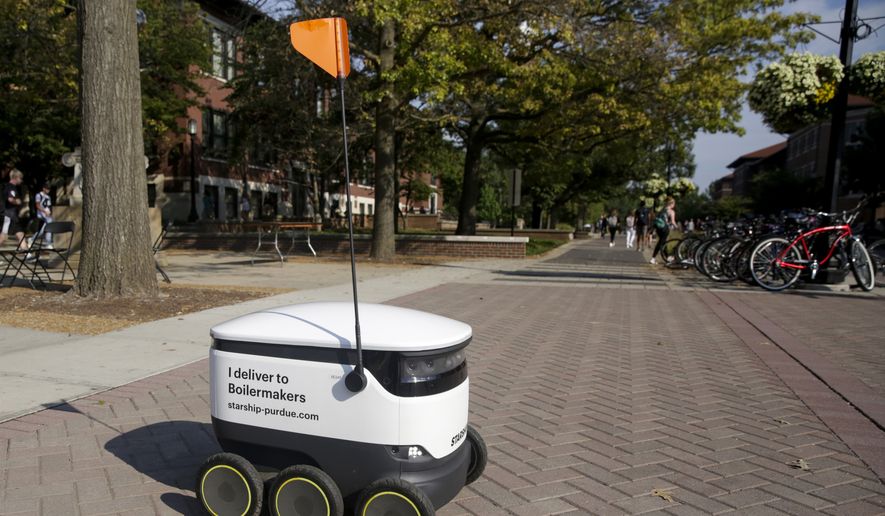OPINION:
Mindar is the name of a new priest tasked with delivering sermons and overseeing religious ceremonies at a 400-year-old Buddhist temple in Kyoto, Japan.
Mindar is not human.
Mindar is a robot.
Mindar is a reported $1 million carefully crafted, female voice-praying bit of steel and silicon.
“This robot will never die,” said Tensho Goto, the chief steward at the temple, Vox reported. “It will just keep updating itself and evolving. With [the infusion of artificial intelligence], we hope it will grow in wisdom to help people overcome even the most difficult troubles. It’s changing Buddhism.”
Welcome to modern-day worship.
First come the machine priests; next come the man-made machinery gods.
It’s not just happening in Japan.
In China, an android “monk” called Xian’er provides spiritual guidance and recites mantras from the Buddhist faith to those visiting the Longquan Monastery in Beijing.
In India, one temple relies on a robotic hand to help with a religious ritual that’s conducted in front of Ganesh, also spelled Ganesha, the Hindu’s elephant-headed god of beginnings.
Then there’s SanTO, short for Sanctified Theomorphic Operator, a foot-and-a-half tall robot that’s designed in the image of any number of statues that Catholic believers might place in their homes. Only SanTO talks; it’s “equipped with software it uses to listen to people, scan their faces for signs of specific emotions, and select religious texts that may be relevant to their troubles,” the Wall Street Journal reported. The device was aimed at providing biblical comfort to elderly people in nursing homes.
Another robot in Germany called BlessU-2 delivers biblical truths in several languages and offers, on demand, blessings to those of the Protestant faith — after first asking, that is, “Would you like to be blessed by a female or male voice?”
With more advanced A.I., it won’t be long before these man-made priests become commonplace. From there, it’s only a short hop and skip to manmade gods.
Heck, that hop has already happened.
“Church of the A.I. God is even creepier than I imagined,” CNET reported in late 2017, about the Way of the Future, the name of a “church” founded by former Google, Waymo and Uber engineer Anthony Levandowski.
“What is going to be created will effectively be a god,” Levandowski told Wired’s Mark Harris.
The idea of worshipping artificial intelligence may still carry a bit of the shock factor; the idea may still seem blasphemous, outlandish, absurd, et cetera to the masses. But wait a few years.
Automation is becoming more mainstream. Artificial intelligence is popping everywhere. Mass surveillance and data collection, the food of A.I., are becoming more and more accepted, less and less problematic. And society, thanks in large part to the steady rise of the religious nones, is continuing its trend toward secularization.
Cherish your pastors while you’ve got ’em.
One day, not too far in the future, it could be a face of metal and silicon that’s doing the preaching.
• Cheryl Chumley can be reached at cchumley@washingtontimes.com or on Twitter, @ckchumley.




Please read our comment policy before commenting.